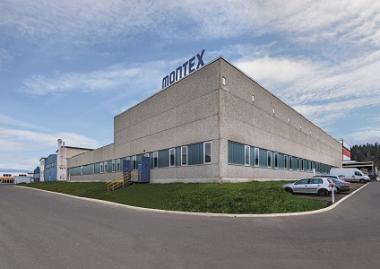BTMA: VeriVide’s new UltraView booth
At ITMA 2023 in Milan from June 8-14, BTMA member VeriVide will introduce UltraView – its first all-LED light booth for achieving a new level of consistent and standardised colour assessment.
The company’s light booths and lighting cabinets are specified by major global retailers around the world, who rely on them for establishing and maintaining visual quality standards across their supply chains.
This is no easy feat, given the textile industry’s complex structure and the many process stages each individual garment undertakes from the designer’s desk to the finished garment on the retail shelf – often criss-crossing several continents during the journey.
Benefits
UltraView brings a range of sustainable new benefits to designers, mills and brands, and combined with VeriVide’s successful DigiEye system for non-contact colour measurement and digital imaging, can have a positive impact on a company’s bottom line, bringing savings in time, money and CO2 emissions.
The new all-LED light booth meets all relevant international lighting and colour assessment standards. The UltraView incorporates the company’s A rated CIE D65 and CIE D50 artificial daylight light sources and includes multiple pre-set point of sale light sources while being fully tuneable for recalibration to the individual requirements of each customer. In the past, individual light booths have had to be dedicated to the stipulated settings of each specific customer’s switch sets. The rapid flexibility of UltraView, however, makes the need for multiple light booths a thing of the past.
It also eliminates the need for the regular bulb changes that were necessary with fluorescents, to provide significant energy savings.
As supply chains continue to move towards digitisation away from time-consuming and expensive physical sampling, a version of the UltraView, VisionView, is available with an internal monitor to enable physical samples to be compared with their digital versions, if required.
DigiEye
For non-contact colour measurement and digital imaging, VeriVide’s DigiEye collects and processes data that can be communicated and shared instantly, enabling manufacturers, producers and processors to speed up quality control, sustain product integrity and reduce waste.
DigiEye also overcomes the limitations of spectrophotometers, which are limited to products with a solid colour appearance and can only measure ‘average’ colour, assessing the limited area of the product exposed in the instrument’s aperture.
These limitations are further compounded if the product has any form of multi-coloured characteristics or appearance, an uneven or inconsistent surface, a colour area too small to be captured by the instrument or any sort of surface effect, such as carpet pile and the sheen of satin and silk.
BTMA












